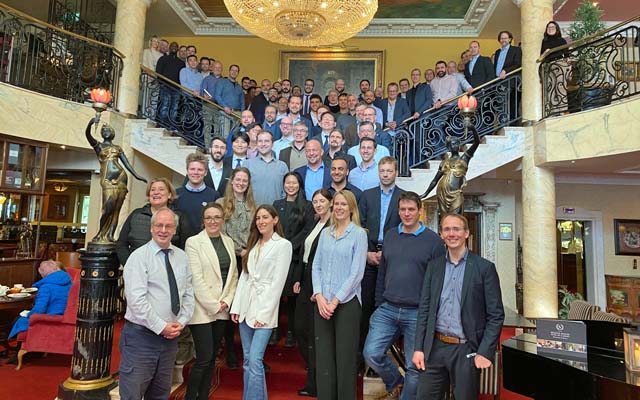Performance monitoring systems can help shipping companies with regulatory compliance whilst gaining insights into fleet performance projections but better systems are needed to tap into the full potential of accurate data and energy saving solutions.
That was one key takeaway from HullPIC, an event organised jointly by coatings company Jotun and VB Conferences, led by DNV’s Volker Bertram. From the discussion, there was clear agreement that there is a need for better monitoring systems to meet both regulatory and market pressures but how best to go about developing and introducing them was less clear. Even with regulations such as CII, often considered flawed and which carry no financial penalty, vessels do need to comply. The EU ETS on the other hand is a financial measure so it helps prioritise maximising fuel efficiency and reducing emissions.
New fuels are under development and will soon enter the mix but even without these there are many technological and operational measures available including eco-efficient ship designs, air lubrication, rotor sails, premium paints, optimisation software, and improved speed management. But these only reach so far; fleet performance management, and data-driven tools are necessary to evaluate performance, including hull and propeller performance.
Petter Korslund, regulatory affairs manager, Jotun performance coatings said: “There are, however, challenges in terms of selecting suitable performance monitoring systems for the ship operator’s purpose and profile, data collection methods, evaluating energy efficiency devices, and the ever-changing regulatory landscape. It’s a complex subject so to address these challenges it is important to share knowledge, expertise and insights.”
Several presentations showed how AI is being embraced by the shipping community. While acknowledging there is no single dominating software solution in performance monitoring, there seems to be a move towards accepting AI and simulations to improve performance monitoring.
Zakari Midjiyawa of Jotun spoke on assessing marine coating performance on full-scale ships using an experimental channel-flow setup. This provided insights into hydrodynamic performance and fuel efficiency of different coating types and roughness in a steady-state simulation of a container ship. The simulation can identify the optimal combination of coating type and roughness that provides the best hydrodynamic performance and fuel efficiency.
Less than 20% of those attending considered it very likely that IMO’s 2030 targets would be met; a slightly smaller number said probably not, with the rest uncertain. There was similar uncertainty about when most shipping companies would assess hull performance through auto-logged data. Among favoured potential possibilities for AI and machine learning in improving hull and propeller performance, were being able to incorporate more parameters and more accurate predictions.
The human factor was seen to be an important consideration: personnel are still neeeded to operate the efficiency technology. On the other hand, greater reliability of data and systems can allow mandatory reporting to facilitate operations.
One major hurdle holding back short-term decarbonisation, is the split incentive between owners and charterers, which would require performance clauses in time charter contracts, so both owner and charterer benefit financially from a more efficient vessel. Another view was that purely relying on Ai for performance monitoring is not reasonable; sea state and ship operation are complex in nature and invalid or experimental data used to train AI and machine learning data leads to unreliable output.
However, operational measures can significantly boost a fleet’s energy efficiency, and generally come with a lower investment cost compared to technical measures. With tightening regulations driving interest in fleet performance monitoring legislation requiring actual measurement data would come with a cost but would be very effective at driving real performance improvements.
As part of Jotun’s Clean Shipping Commitment, the company says it will continue to contribute to the discussions to further advance vessel performance so that the industry can become even better, more sustainable in the future.
Image: HullPIC conference (credit: Jotun)



